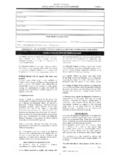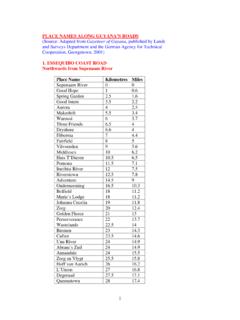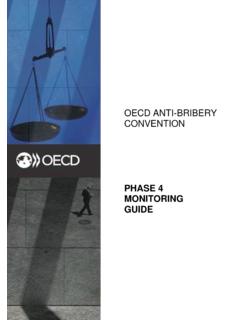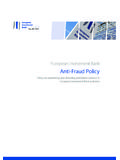Transcription of THE TRANSITION OF GUYANESE EDUCATION
1 THE TRANSITION OF GUYANESE EDUCATION IN THE TWENTIETH CENTURY ODEEN ISHMAEL GNI Publication Georgetown Boston Toronto 2012 Coyright 2012 by Odeen Ishmael All rights reserved. Contents 3 ~ Contents ~ Chapter Page Foreword 5 Introduction 7 1 Efforts to Eradicate Illiteracy in the Third World 24 (1960-1988) 2 The PPP s Contribution to Public EDUCATION 42 (1950-1980) 3 How Free is the Free EDUCATION Promised 62 by the PNC? 4 The GTA and Teachers Problems 68 5 Guyana s Multilateral Schools 73 6 Kindergarten EDUCATION in Guyana 81 7 Some Aspects of Primary EDUCATION 87 8 Secondary EDUCATION in Guyana 97 9 Teacher-Training in Guyana 110 10 The Dilemma of Interim Teachers 119 11 The Struggle Against Dual Control of Schools 125 12 Transportation and EDUCATION in Guyana 143 13 The Textbook Fiasco 150 14 Free EDUCATION and the University 155 15 Technical EDUCATION in Guyana 159 16 The New Examinations 170 17 Anti-Socialism and GUYANESE EDUCATION 177 18 The EDUCATION Debate in Parliament 1978 189 19 The Admissions Council for Higher EDUCATION 198 20 Schools Re-open Problems Resurface 206 21 Marking 125 Years of Teacher-Training 209 in Guyana 22 The
2 EDUCATION Debate in Parliament 1979 216 23 Democratisation of EDUCATION : A Reply to 219 Dr. Fred Sukdeo 24 Poor Discipline in Schools 224 25 How Independent is the Teaching Service 233 Commission? The TRANSITION of GUYANESE EDUCATION in the Twentieth Century 4 26 Higher EDUCATION in Guyana 239 27 Trained Teachers Dismissed 250 28 Twenty Years of the University of Guyana 252 29 The Need for a National EDUCATION Policy 266 30 The Plight of Guyana s Children 277 31 The CXC Examinations: Problems and 284 Perspectives 32 Teaching Profession in Crisis 293 33 Guyana EDUCATION Rocked by Crisis 297 34 Moral EDUCATION a Priority in a Democratic 304 Guyana 35 NFFAT Does It Have a Future? 308 36 Improving School Facilities The Tasks Ahead 313 37 Teachers Must be Encouraged Back 317 38 Improving Amerindian EDUCATION 321 39 Technical EDUCATION Must Be Expanded 325 40 Improving Health Conditions In Schools 329 41 Using the Media to Educate 333 42 The Common Entrance Examination 337 43 Some Aspects of EDUCATION Management 341 44 Let the University Function Properly 344 45 Towards a Progressive EDUCATION Policy 349 46 Private And State EDUCATION Can Co-exist 354 47 Recurring Problems in EDUCATION 362 48 Teachers Militancy Must Move Their Union 368 49 A Bilingual Population is Needed 372 List of Abbreviations 377 Index 379 Foreword 5 ~ Foreword ~ By Dr.
3 Cheddi Jagan ducation and culture, EDUCATION and development, culture and development: these are all inter-related questions to which development strategists are paying increasing attention. For too long, development has been looked at mainly as economic finance, technology, expertise. But it is more and more being realised that the human factor is a most, if not the most, important ingredient to success; that there is a close relationship and interaction between the economic base and the political, ideological, institutional and cultural superstructure; and that development depends upon a harmonious and reciprocal intercourse between the diverse spheres. Odeen Ishmael is eminently qualified to write on the problems of the TRANSITION of EDUCATION especially in the case of Guyana.
4 Not only does he have a total grasp of the science of political economy, he is also a qualified academic and teacher with much practical experience. Odeen Ishmael s extensive writings on EDUCATION and its decline are set in the context of incorrect development strategies, like the Puerto Rican model on which Guyana s first Development Plan (1966-72) was based, lack of democracy, an over-bloated governmental and bureaucratic apparatus, deficit financing, huge E The TRANSITION of GUYANESE EDUCATION in the Twentieth Century 6 public debt, racial and political discrimination, favouritism, nepotism, bribery and corruption , which have become the hallmarks of the majority of Third World countries.
5 Those collectively and cumulatively act as fetters on the productive forces, and result in stagnation and fall in production and productivity. The resultant debt crisis is simultaneously the effect and cause of the general crisis of dependency huge budget and balance of payments deficits, shortage of foreign exchange, and a marked deterioration in the quality of life. Attempts to treat symptoms with IMF structural adjustment policies and not root causes lead to decline in expenditure on social services in general and EDUCATION in particular. A vicious circle of underdevelopment is bred through the development of a nation of functional illiterates on the one hand and the brain drain on the other.
6 I feel certain that Odeen Ishmael s writings on EDUCATION will help to shed light on the basic problems of underdevelopment, the widening gap between the developed industrialised states and the Third World, and the need for a policy of genuine interdependence between the North and South. CHEDDI JAGAN 17 May 1989 (This foreword was written when the author had earlier intentions to compile the articles written before this date into book form. However, political events at the time, particularly the intensified campaign locally and internationally for free and fair election in Guyana, placed this project on the back-burner. At the time the foreword was written, Dr. Cheddi Jagan was the General Secretary of the People s Progressive Party (PPP) of Guyana and Leader of the Opposition in the National Assembly.)
7 He served as Guyana s Chief Minister in 1953 and then again in 1957-61. He became the country s first Premier in 1961-64. He was elected as President of Guyana in October 1992 following the first free and fair elections since the country s independence. He died in March 1997 while still in office.) Introduction 7 Introduction rom the decade of the 1950s, Guyana began to implement programmes to transform its EDUCATION system from the type established since the beginning of the post-Emancipation period (1838) to one which is relatively comparable to that existing in the developed nations like Great Britain, Canada and the United States of America. These programmes included the establishment of compulsory primary EDUCATION , the wide expansion of secondary EDUCATION and improved technical and specialist EDUCATION up to university level.
8 Like Guyana, most of the developing countries of Latin America and the Caribbean, Africa and Asia (all referred to as the Third World) also commenced a similar phase; in other words, their EDUCATION systems began undergoing a TRANSITION from the stage of educational underdevelopment to one relatively developed. The pace of this TRANSITION depended on a number of national factors; up to the end of the twentieth century it was, therefore, very slow in some of these countries and relatively fast in others. From 1975 to 1992, I wrote for the People s Progressive Party (PPP) a series of articles on public EDUCATION issues and these were published periodically in the Mirror newspaper, the quarterly Thunder (the theoretical journal of the PPP), and Youth Advance F The TRANSITION of GUYANESE EDUCATION in the Twentieth Century 8 (the monthly organ of the Progressive Youth Organisation (PYO), the youth section of the PPP).
9 These articles form the basis of this book. However, I have added two others: a paper (Chapter 1) on the problem of eradicating illiteracy in developing countries, prepared in 1989 for an EDUCATION seminar in the Bahamas; and an article written for the Chronicle in 1996 on the need for a bilingual population in Guyana (Chapter 49). In my articles in this collection, I projected a number of socialist viewpoints in proposing solutions to the serious problems affecting EDUCATION in Guyana. I also expressed strong criticisms of anti-socialist measures which were allowed to flourish in the GUYANESE EDUCATION system. And the reader will gather that my views regarding the development of EDUCATION coincide with those of the PPP of which I was a leading member.
10 Overall, the articles examined a variety of factors that influenced the decline in the quality and standard of EDUCATION in Guyana, particularly during the administrations of the People s National Congress (PNC) from 1964 to 1992. While they looked at the progress as well as the setbacks of public EDUCATION , they also suggested proposals for its improvement. These called for a properly planned and implemented EDUCATION system to bring about social and economic development in order to hasten the TRANSITION from an underdeveloped form of EDUCATION to one of a relatively more advanced type. The collection examined various aspects of the problems affecting the development of EDUCATION in Guyana.




